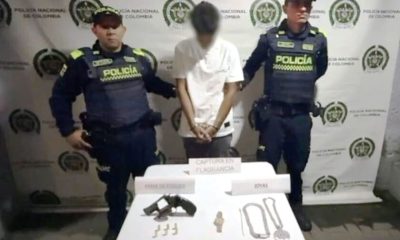European Parliament Accuses Colombia’s President Gustavo Petro of Favoring Criminal Groups While Petro Blames European Mafias For Colombia’s Insecurity
A war of words has erupted between members of the European Parliament and the administration of Colombian President Gustavo Petro, following a parliamentary resolution expressing grave concern over rising political violence in the South American nation. As reported by the news outlet Infobae, European parliamentarians have accused the Colombian government of actions that indirectly favor criminal organizations, while President Petro has vehemently rejected the claims as baseless and misinformed.
The conflict centers on a resolution passed by the European Parliament on September 9, which highlighted an escalation in political violence in Colombia throughout 2025. The resolution condemned a series of violent acts, including the assassination of Senator and presidential pre-candidate Miguel Uribe Turbay, warning that such crimes are not isolated incidents but part of a wider pattern of intimidation that threatens democratic stability ahead of the 2026 elections.
Members of the European People’s Party (EPP), including Hermann Tertsch and Juan Ignacio Zoido, have voiced specific concerns. They allege that the Colombian executive branch is indirectly enabling groups such as the Clan del Golfo, FARC dissidents, and the Cartel de los Soles, a transnational criminal network allegedly operating out of Venezuela.
Speaking to Colombia’s W Radio, Tertsch asserted that these criminal organizations have expanded their operations during Petro’s tenure. “The international mafias could even be Gustavo Petro’s own interlocutors,” Tertsch stated, referencing alleged links between the government and criminal structures.
The parliamentarians cited recent high-profile attacks as evidence of the deteriorating security situation, including the murder of Senator Uribe Turbay, a car bomb attack in Cali, and the downing of a military helicopter in Antioquia that resulted in the deaths of 12 police officers. They argue these events are part of a coordinated strategy to destabilize Colombian institutions.
“The international mafias could even be Gustavo Petro’s own interlocutors,” Tertsch stated, referencing alleged links between the government and criminal structures.
Juan Ignacio Zoido, speaking to Blu Radio, clarified that the resolution is not a political judgment but a response to objective data. He reminded listeners of Petro’s campaign promise of “Total Peace,” contrasting it with the current security climate. “Armed violence is threatening the democratic stability of Colombia, by a man who had promised absolute peace but is achieving the highest rates of crime in the country,” Zoido declared. He added that the tone of speeches from the presidency contributes to social tension, indirectly facilitating the actions of criminal groups.
In response, President Gustavo Petro, during an official event in Timbío, Cauca, dismissed the European resolution as “senseless” (“una sinrazón”). He countered that the perpetrators behind Senator Uribe Turbay’s assassination were not domestic but rather an international mafia operating from Europe.
“It is not because of Petro’s speech that Senator Uribe Turbay was killed; he was killed by the mafia according to the evidence, and that mafia lives in Europe and not here in Colombia,” the president affirmed.
In a later, more extensive speech in Popayán, Petro directed a message to Europe, invoking historical grievances of colonialism and slavery and accusing the parliamentarians of hypocrisy. He asked the assembled crowd: “What does this town say to Europe? Is it the president who is denying democracy to Colombians, to Latin America, and to the world? What do the indigenous people of America say? Is President Petro anti-democratic?” He continued, “The anti-democrats are those who applaud those who drop bombs on babies… I ask the children and the youth of Europe, all of you, to rise.”
Despite the president’s rebuttal, the MEPs have stated their intention to continue monitoring the situation in Colombia closely, particularly as the 2026 election cycle approaches. Tertsch mentioned that parliamentary groups such as Patriots for Europe and the Spanish political party Vox, via its Foro Madrid initiative, will maintain rigorous oversight of the Colombian government.
Zoido rejected Petro’s characterization of the resolution’s supporters as far-right, insisting that a majority of the political parties that backed the measure are not. “What we want is for there to be a strong Colombia from a democratic point of view,” he said. “We have enough data to be concerned about the escalation of violence and insecurity in the country.”
The European Parliament’s resolution also calls for the protection of political candidates, human rights defenders, and members of the security forces, emphasizing that impunity for recent crimes only encourages further attacks.
European Parliament. Photo credit: Elekes Andor/Wikipedia.



























